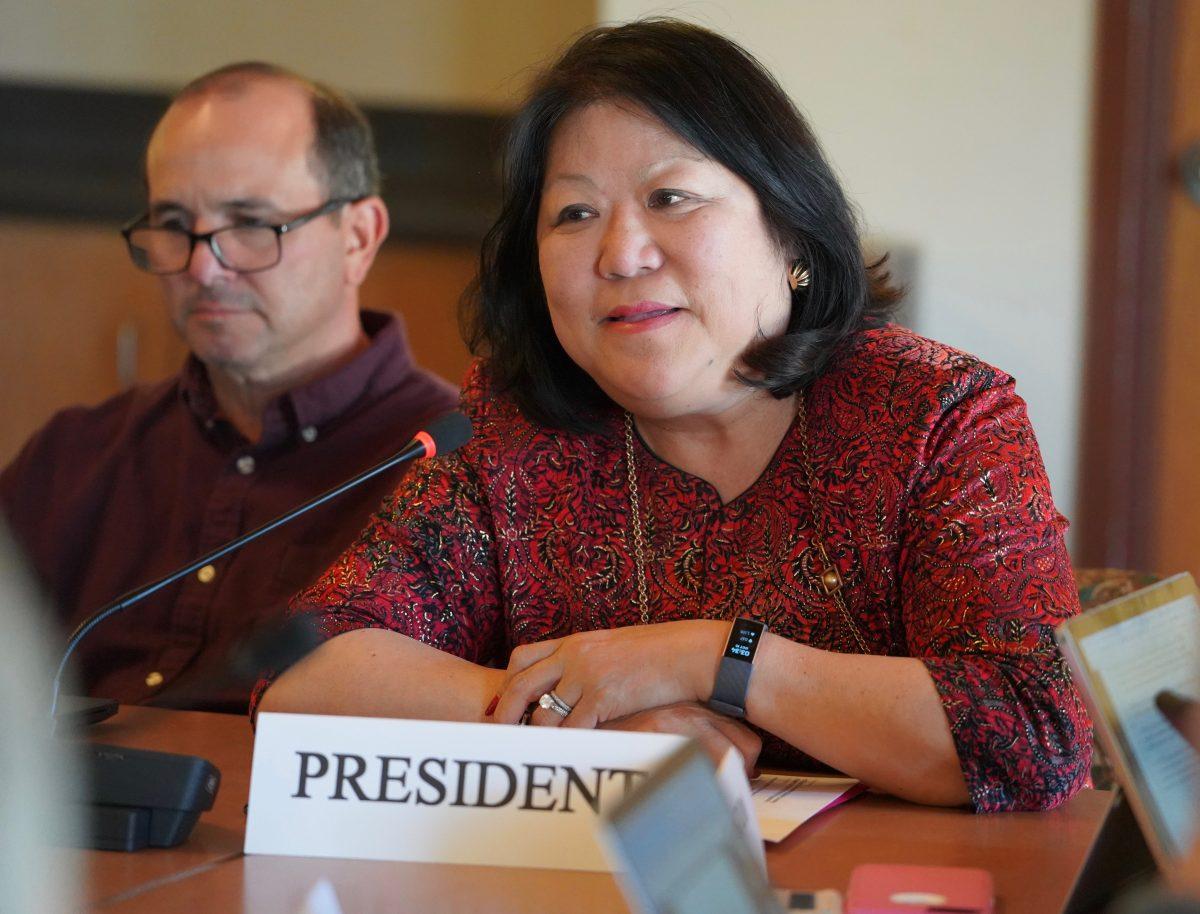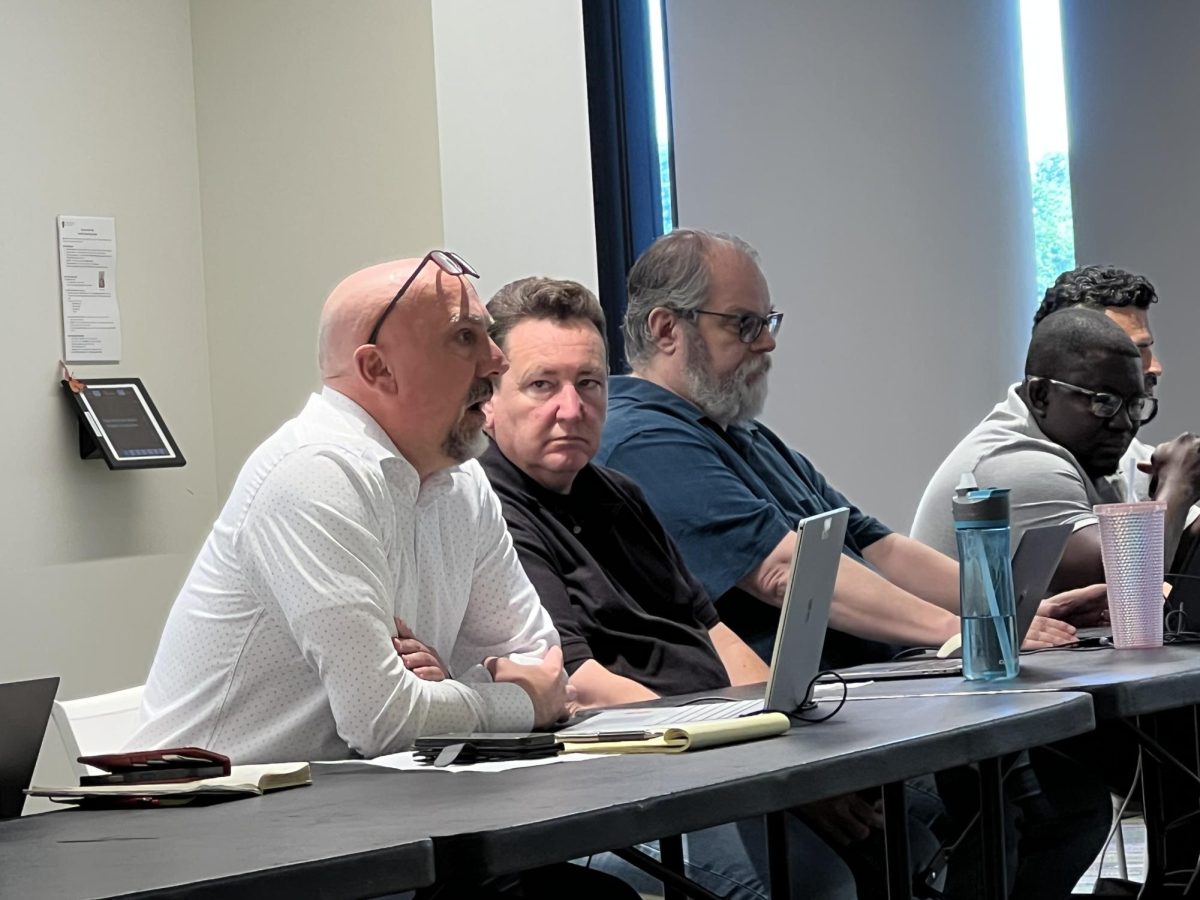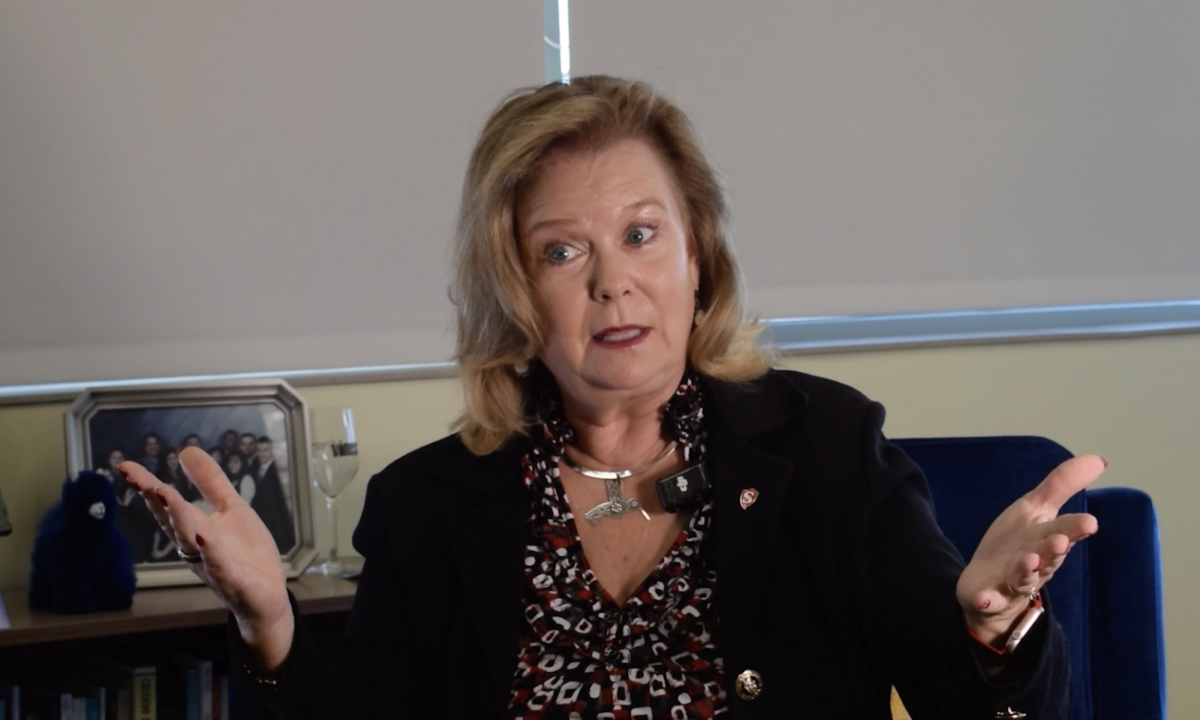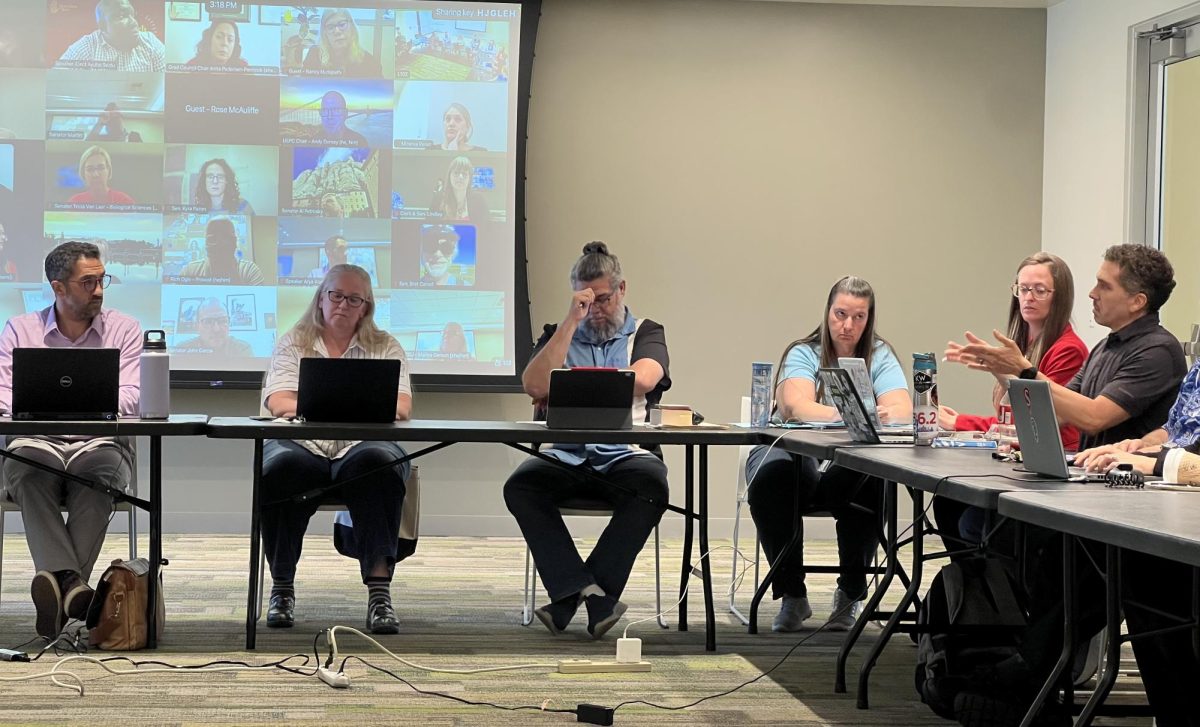The academic senate meeting was held Tuesday led by Dr. Steven Filling, speaker of the faculty. Topics that were discussed: priority registration for student athletes, credit & no credit census date, ethnic studies requirement, land recognition statement, and addressing input of campus advising practices.
Land Recognition Statement
Dr. Cueponcaxochitl Sandoval, assistant professor in ethnic studies, urged the university to recognize it was built on indigenous land. “We like to promote indigenous visibility on campus. By recognizing we are on native land,” Sandoval said.
University President Ellen Junn thanked Sandoval for bringing up the issue while also bringing up activities that the campus has engaged on Indigenous Peoples’ Day. University President Ellen Junn recognized on Indigenous People’s Day, to commemorate two oak trees were planted. “We will do this every year. Just want to say many thanks to students of ethnic studies for bringing this to our attention,” Junn added.
Dr. Sandoval mentioned about bringing a “tool-kit” for faculty, staff, students and community to draw additional resources for syllabi or other types of programs on campus.
Priority Registration for Student Athletes
Dr. Robert Werling, UPEC chairperson, began discussing Student Athlete Priority Registration. Some faculty argued that the issue is already resolved while others pointed out that the issue has never been finalized at all.
Professor Sam Regalado, History, was surprised that the issue is still being revisited for a few years back.
ASI President Maria Marquez, spoke about this issue. “We would like to continue advocating for student athletes to take priority registration. We see it as a need. As a current need within our student population,” Maquez said.
Dr. Ann Strahm, statewide senator, thought there was already a student priority registration known as a two pass system. “I voted on a two pass system for the purpose of helping make sure that our student athletes were given the ability to have priority registration,” Strahm said.
“I think that it should include looking at all students to see if we are going to see which students who deserve priority registration,” Strahm added.
Credit & No Credit Census Date
Werling had brought up the conversation about the deadline census date with credit and no credit. “A student can change letter grade from credit to no credit before the census date, it becomes a little trickier because they have to go to the professor they had to seek their permission as to opposed to instead of signing a signature,” Werling said.
He asked for feedback if the census date is appropriate date or it should be extended. This issue was carried from last year according to Werling. Then, the open discussion was open to the faculty and staff.
Dr. Jennifer Strangfeld, sociology, gerontology, and gender studies, expressed her views, “I just don’t really get why it’s that big of a deal to go later…Most of the time, with students are coming to me with that change it’s because they’re struggling in course and they are trying to protect their GPA and I don’t necessarily think it’s a bad reason.”
“The GPA does have implications for them. They have to get credit for the class and it’s actually harder on the credit/no credit option than it is on with the grade,” Strangfield said.
“I never heard a compelling argument for why it should be so strict for students,” Strangfield concluded.
Ethnic Studies Requirement
Werling discussed about the ethnic studies requirement which is revisited from the last meeting in September 24th. He questioned, “Should ethnic studies simply replace the multicultural requirement?”
The ethnic studies stirred debate among the faculty which concerns whether or not students should take ethnic studies courses as a requirement outside their major and when to implement the requirement.
Dr. Jennifer Strangfield commented on this issue. “We forward a proposal for thinking about the new multicultural requirement and we put forward a proposal which is a six unit requirement.”
Strangfield was concerned that the problem is that there is a misorganization between the two different committees. “I have no idea what my committee is doing anymore because there is another committee and there are forums that are happening which we aren’t part of and yet we are part of this discussion and it’s just kind of for me; it’s kind of a hot mess,” Strangfield said.
Campus Advising Practices
Dr. Keith Nainby, speaker elect, opened about Campus Advising Practices and asked for feedback or input on any changes to the current advising practices.
Nainby described a “hybrid model” for advising students. “What I meant about a hybrid model is we have both a decentralized advising practice meaning we have faculty advisors in their major disciplines who work with students throughout most programs one-to-one each semester to offer advising to students,” Nainby said.
AnaMarie Guichard, Psychology and Child Development, said “I honestly don’t see anything to talk about advising on our campus without talking about the fact that students had to engage with that form,” Guichard stated.
Guichard said “I just know the fact that it [graduation form] terrifies our students and in my 13 years on this campus. I had yet to meet someone who explained to me why we do advising the way we do on this campus.”
Guichard remembered a student from liberal studies who came in tears due to being told two different things from two different people from two different advising organizations on campus. Guichard stated, “She was on the verge of a nervous breakdown and I had to run around to find someone who had expertise in lib. [liberal studies] advising to help me with this student.”
Professor Sam Relegado, history department representative, felt that students never come to advising and doesn’t want to ask for feedback and felt that the question should go to faculty and students.
The Academic Senate ended with Dr. Filling after the discussion of Open Forum following a continuing input and feedback of Campus Advising Practices.















